Dispatch: 'How can I rebuild my home?' Life-long Beirutis become displaced in their own city
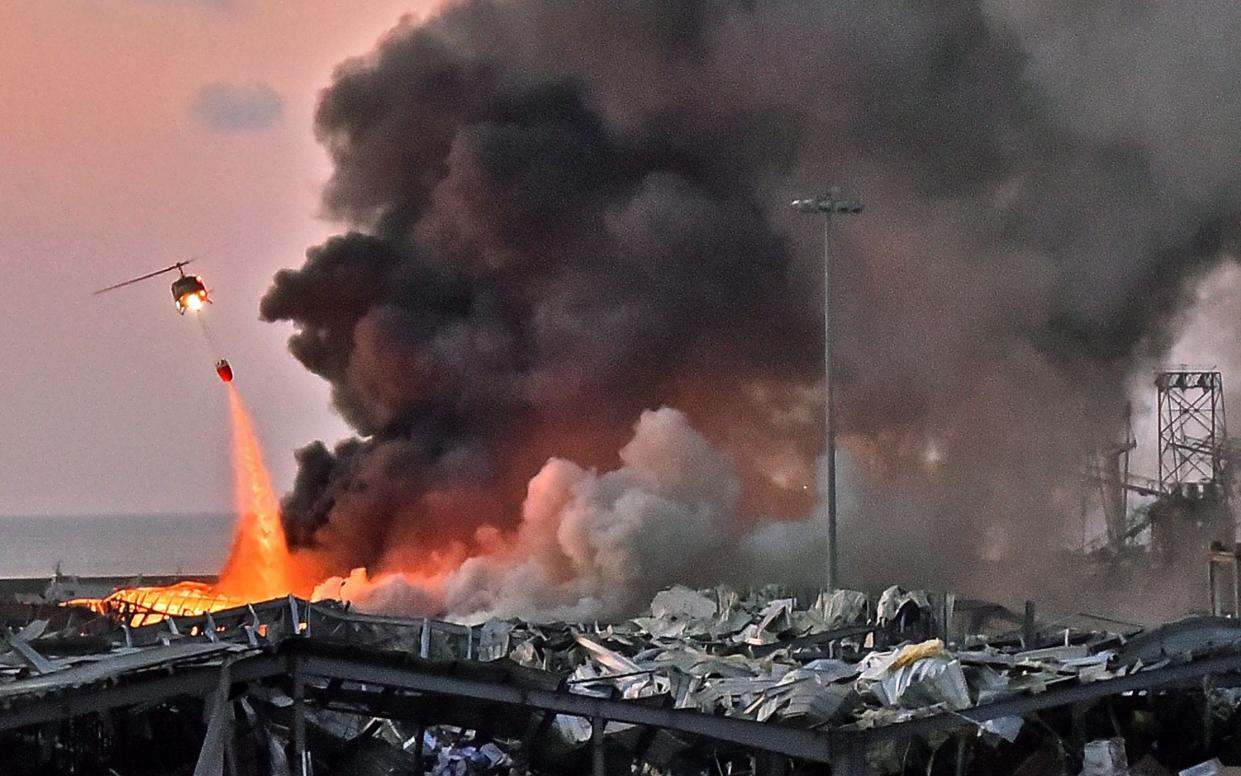
When Yusef Karam rushed back to the building that has been in his family for the past 70 years, he found destruction: his cousin had died when glass lodged into his face, the tenants of his 20 apartments were fleeing the ruins of their homes and the building that his father built was destroyed.
“It is a complete disaster,” he said. Three days after the blast, 60 volunteers were still working to remove the debris that was piled high outside the building.
Just 250 metres from the blast site, Mr Karam said his family home and business looked like “an atomic bomb had gone off,” when he rushed there after the explosion.
His cousin was dead, another tenant was blinded and others were severely injured.
As the dust settles in Beirut and the mass volunteer-led clean-up mission continues, Mr Karam is among the hundreds of thousands who cannot conceive of how they will rebuild their lives.
The governor of Beirut estimates that up to 300,000 people have been left homeless by the explosion that brought the Lebanese capital to its knees on Tuesday.
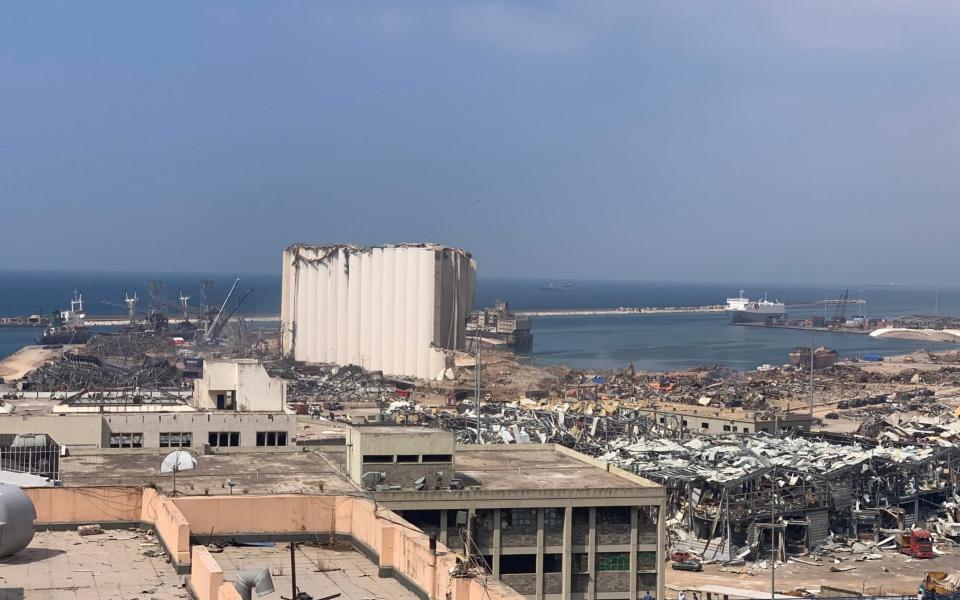
Hundreds of locals have offered up their spare rooms to those who have been affected as NGOs rushed to set up shelter arrangements.
The opposite of an individualistic city, Beirut is the capital of a tiny and while often divided, tight-knit country. NGO officials told the Telegraph that barely a handful of the shelter they rushed to provide has been taken up. A nation known for its hospitality - Beirutis fled to the mountains and the outskirts of Beirut to stay, for potentially months, with friends, acquaintances and family.
For hundreds of thousands of people, life is on hold as they squeeze into the spare rooms and sofas of those less-affected by the blast.
Waiting outside a Beirut hospital to collect his father’s body, Mohammed Sayed, said he had no idea how he would carry on.
The economic crisis left him out of work over nine months ago, forcing him to move back in with his elderly parents.
He had only stepped out to buy water when the explosion rocked his house and killed his father who was inside alone.
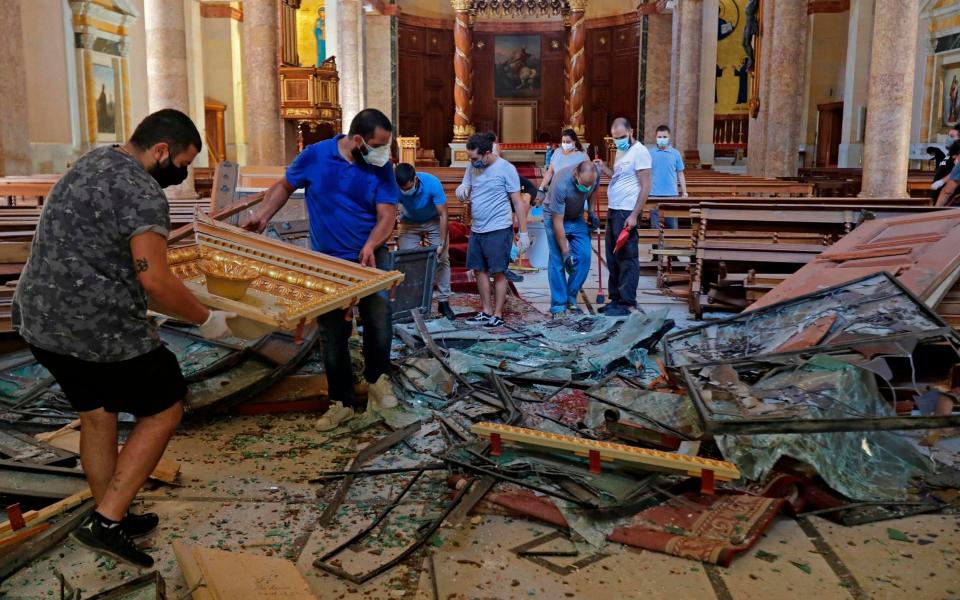
Mr Sayed and his mother cannot afford to replace the windows in their flat and have no other place to stay.
Lebanon was already facing a series of acute crises that amounted to its biggest threat to stability since the 1975-1990 civil war.
“We are working without water, without electricity, we have a corrupted government. Now with what happened, I don’t believe we can do anything anymore,” said Mr Karam.
“How do we fix the elevators, water supply, electricity?”
People’s money has been stuck in Lebanese banks since the beginning of the year. The only dollars that can be withdrawn are those which are freshly transferred in from abroad - even then, they are scarce.
“Our money is in the banks, but we cannot use it to buy materials. If you want to buy aluminium, you want to buy, glass, you want to buy paint, you want to buy anything - you need fresh money into your account. If you go to the bank, they cannot give it to you,” said Mr Karam.
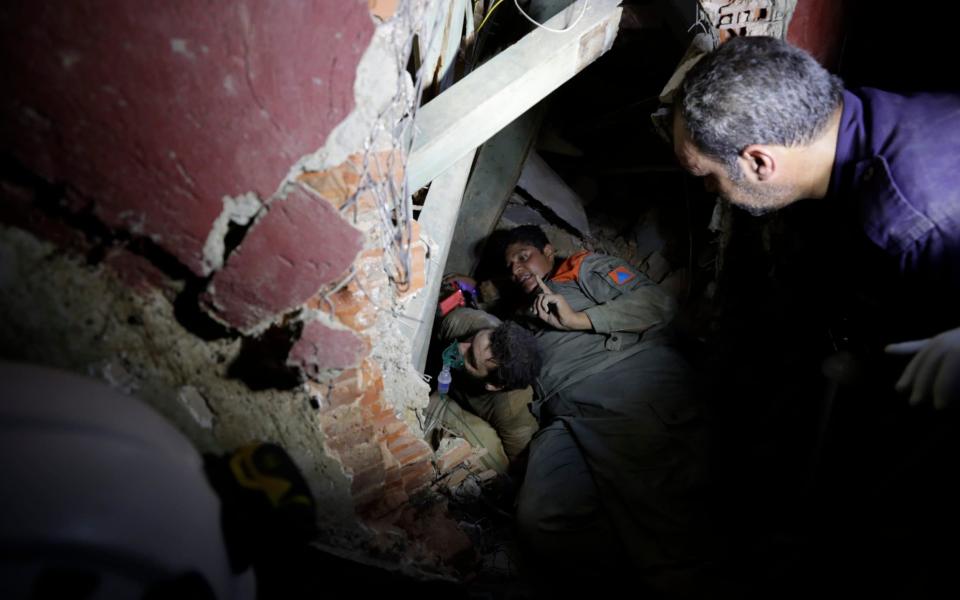
The initial hopes for insurance payouts have widely been dashed, with all businesses and homeowners that The Telegraph spoke to saying that their insurance has said it won’t cover the explosion.
Meanwhile Lebanon, a hugely import-reliant country, was already struggling to bring the necessary food and supplies into the country as they must be paid for in US dollars. To make matters worse they now have no port. The only other borders are war-torn Syria and arch-enemy, Israel.
“Lebanon barely produces any glass, so how do we rebuild any of this” asked pharmacy owner Paul, in Gemmayzeh, one of the hardest-hit areas.
“I’ve owned this pharmacy for 35 years, I lived through the war. I have never seen such a moment. Within 10 seconds, I lost everything.”
There are growing fears among business and homeowners that once the current supply of glass in Lebanon runs out, there will be no more.
People are scrambling to sort through the rubble to collect as many raw materials to help them survive the winter as possible, said a construction worker outside Mr Karam’s building.
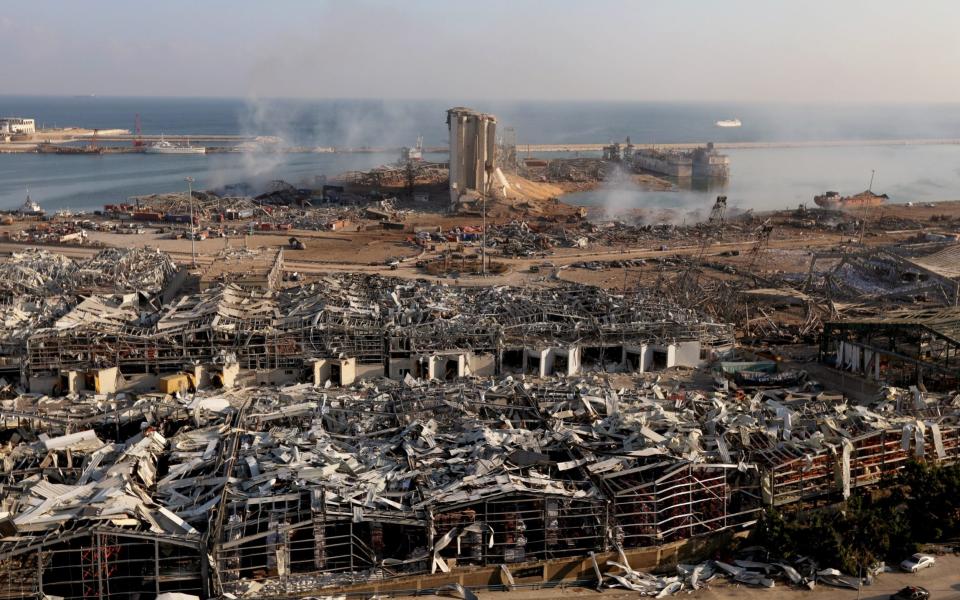
Shop owners in nearby Mar Mikhael, less than a kilometre away from the blast site, are sleeping on chairs outside of their shops to stop what remains of their stock from being stolen.
For much of this area of Beirut, the severity of the damage to their houses and businesses was the final economic blow.
“We don’t have fresh money to fix the buildings. It’s a destroyed city which will be kept like for 5, maybe 10 years,” said Mr Karam, looking around the complete destruction of one of the apartments.
“I don’t think we’ll get anything from the government, all we can hope for is money from the international community.”
“Otherwise I don’t know how we’ll survive.”
The anger across Beirut is rising and the popular protest movement that ground the country to a halt over the winter, is quickly reviving.
“Hang the nooses” was written into the dust of car windows that had been destroyed by the blast.
Additional reporting by Christina Cavalcanti


